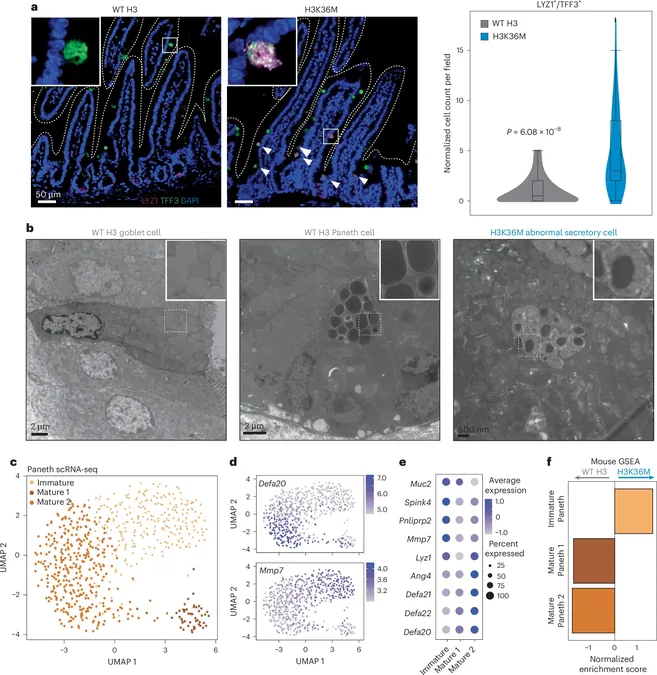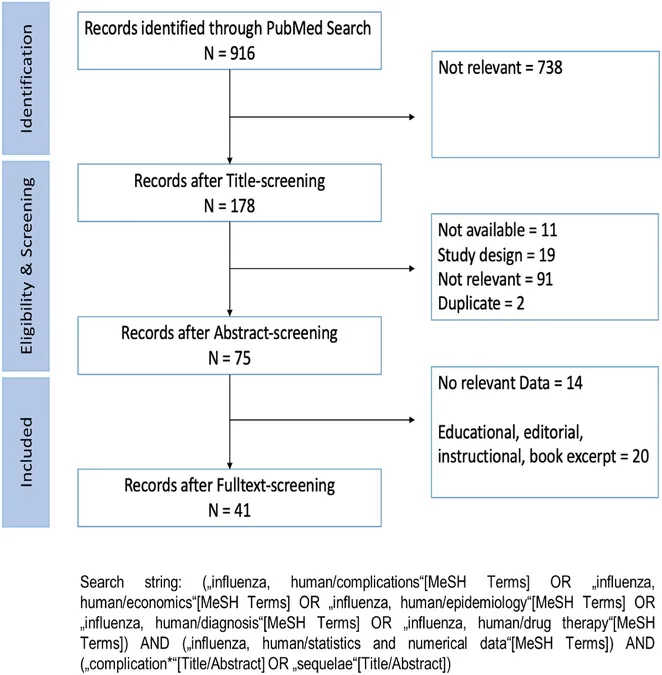
Breakthrough Discovery: Scientists Uncover the Key to Intestinal Cell Regeneration Post-Injury!
2025-03-25
Author: Jia
Breakthrough Discovery: Scientists Uncover the Key to Intestinal Cell Regeneration Post-Injury!
In a significant advancement that could revolutionize therapies for colorectal and other cancers, researchers from the University of Colorado Cancer Center have cracked a complex cellular code. Their findings—recently published in the esteemed journal *Nature Cell Biology*—highlight the critical role of H3K36 methylation in the regeneration of intestinal cells.
Dr. Peter Dempsey, a leading figure in pediatric developmental biology, along with Dr. Justin Brumbaugh, an expert in molecular and cellular biology, have shed light on how the intestine possesses a remarkable capability to heal itself from damage. According to Dempsey, the process involves dedifferentiation, wherein cells revert to a stem cell-like state following injury and subsequently regenerate the intestinal lining.
The Quest for the ‘Regeneration Switch’
Finding the mechanism that transforms ordinary intestinal cells back into their regenerative counterparts has long been a quest for scientists. Utilizing innovative animal models, Dempsey and Brumbaugh identified H3K36 methylation—a biochemical alteration of the H3 histone protein—as the governing 'switch.' This mechanism toggles the plasticity of intestinal cells, controlling whether they maintain their specialized functions or revert to a regenerative state.
Brumbaugh elaborates, stating, 'Maintaining cellular identity is crucial for function. If these cells shift at inappropriate times, it could lead to a latent risk of cancer.' The implications of these findings touch upon a vital aspect of epigenetics, underscoring how specific biochemical processes can stabilize or destabilize cell fate.
Looking Forward: Potential Treatment Avenues
With the revelation that H3K36 methylation is central to cellular transformation, the research team is gearing up for subsequent studies aimed at harnessing this knowledge in cancer treatment. Dempsey notes, 'The ability to toggle this methylation process could pave the way for targeted therapies, especially for colorectal cancers linked with chronic conditions like inflammatory bowel disease.'
Importantly, this research also opens doors to tackling chemotherapy resistance. The transition to a stem cell state can render intestinal cells less susceptible to chemotherapy and radiation, elevating the possibility of serious side effects such as severe intestinal lining damage in cancer patients.
Dempsey raises a critical point, 'If we can learn how to safely manipulate this regenerative state, we may enhance cellular protection during treatments, ultimately improving patient outcomes.'
A Bright Future in Regenerative Medicine
Brumbaugh's insights emphasize the foundational nature of this groundbreaking research in understanding and manipulating regeneration. 'Our goal as stem cell biologists is to dive deep into the mechanics of this process. By doing so, we create pathways for future innovations in therapies and potentially revolutionary methodologies in drug testing and disease modeling.'
While the ultimate application of creating tailored cell types for transplantation remains a distant prospect, it ignites unparalleled excitement in the field. As researchers unravel the complexities of regeneration, they inch closer to not just healing but redefining the scope of medical treatment.
Stay tuned as we follow this remarkable journey in science that promises hope not just for colorectal cancer patients, but potentially for anyone fighting multiple forms of cancer and severe intestinal disorders!





 Brasil (PT)
Brasil (PT)
 Canada (EN)
Canada (EN)
 Chile (ES)
Chile (ES)
 Česko (CS)
Česko (CS)
 대한민국 (KO)
대한민국 (KO)
 España (ES)
España (ES)
 France (FR)
France (FR)
 Hong Kong (EN)
Hong Kong (EN)
 Italia (IT)
Italia (IT)
 日本 (JA)
日本 (JA)
 Magyarország (HU)
Magyarország (HU)
 Norge (NO)
Norge (NO)
 Polska (PL)
Polska (PL)
 Schweiz (DE)
Schweiz (DE)
 Singapore (EN)
Singapore (EN)
 Sverige (SV)
Sverige (SV)
 Suomi (FI)
Suomi (FI)
 Türkiye (TR)
Türkiye (TR)
 الإمارات العربية المتحدة (AR)
الإمارات العربية المتحدة (AR)